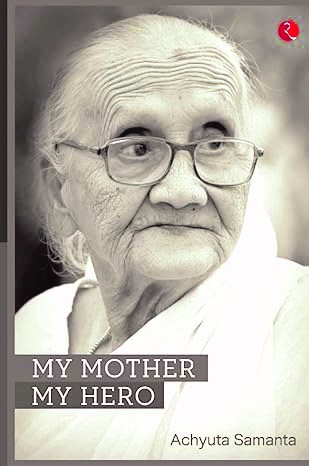Dr Achyuta Samanta was blessed by a formidable and wonderful mother, whose life he describes in a book titled ‘My Mother My Hero’.
On March 18 and 19, UNESCO Chairholders from South Asia met in Bhubaneswar for a brainstorming session on how they could make further progress in helping to actualise the objectives for which the institution was set up under the UN system. A distinguished scholar and Chairholder, Amareshwar Galla, is a naturalised Australian who heads the Department of International Studies at the Kalinga Institute of Social Sciences (KISS). He ensured through the institute’s founder, Dr Achyuta Samanta MP, that his institution hosted the meeting. The UNESCO Chairs’ conference was held within the expansive campus of KISS in the capital of Odisha. Every member of the group, whether they were from the UNESCO South Asia office in Delhi or were Chairholders or associates or assistants, stayed on the campus of the Kalinga Institute of Industrial Technology, at the KIIT Tower, a residential facility that in convenience and quality matches any 4-star hotel. The leafy promenades of the adjoining campuses of KIITS and KISS were ideal for early morning or late evening walks, as greenery was everywhere. Tim Scott, the South Asia Director for UNESCO, and his colleagues (including Sarita Jadav, who is from Odisha) ensured that a collegial atmosphere conducive to a vigorous and open exchange of ideas was created. As a consequence, several new pathways were formulated that were geared towards helping to meet the Sustainable Development Goals (SDGs) set for countries and which thus far have been met in the breach. It may be mentioned that in 2023, when India held the rotating Presidency of the G20 (now G21, with the addition of the African Union as a consequence of the efforts of Prime Minister Narendra Modi), how to meet SDG goals was a theme that was predominant during the India presidency, a precedent that is certain to be followed this year by Brazil and next year by Indonesia, who hold the 2024 and 2025 G21 Presidencies respectively.
During the conference, the founder of the host institution took the delegation to an open-air stadium, where an extraordinary sight greeted them. More than 30,000 young tribal boys and girls, each of whom were schooling free of cost in the institution, greeted them, an image that can be accessed on social media through the tweets of Dr Samanta and others. In perfect order, they listened to the speeches of Founder Dr Samanta, UNESCO South Asia Director Scott, Chairholder Galla, and Vice-Chancellor Behera of the Kalinga Institute. Rounds of clapping ensued, with the volume rising with each wave, and thereafter gently tapering off. Dressed in school uniform, the boys and girls belonging to Dr Samanta’s educational institutions put up an impressive cultural program. Their smiles, their conversations, showed that this was a very young tribal audience amongst whom would in course of time evolve great writers, inventors and philosophers, not to mention doctors, engineers and managers. It has always been the contention of this columnist that the people of India are of the highest quality, and that what is needed is an ambience and a governance and societal structure that recognizes and develops their immense potential. The precision and enthusiasm seen by the over 30,000 young minds in the stadium at Bhubaneshwar illustrated this. Achyuta Samanta was blessed by a formidable and wonderful mother, whose life he describes in a book titled “My Mother My Hero”. Nilima Rani lost her husband in a train accident while still young, and for years afterwards suffered intense hardship, yet managed to make sure her children were winners.
There are those who, although from humble beginnings, forget their early history and disregard the essentiality of assisting others who still are in straitened circumstances to rise. And there are those who count their wealth not in terms of the number of zeros in their bank accounts, but by the number of deprived individuals they have given a helping hand to. Only the latter deserve our respect, and not the former, no matter how many billions they may have. An individual is defined not by what he or she does for herself, but by what he or she does for multitudes of others who have not thus far shared in his or her good fortune. A dauntless daughter of India from Odisha, Nilima Rani, trained her children to respect those who give rather than those who grab, and long may her example prevail over the contrary tendency of not being selfless but selfish, and not being generous but greedy.

